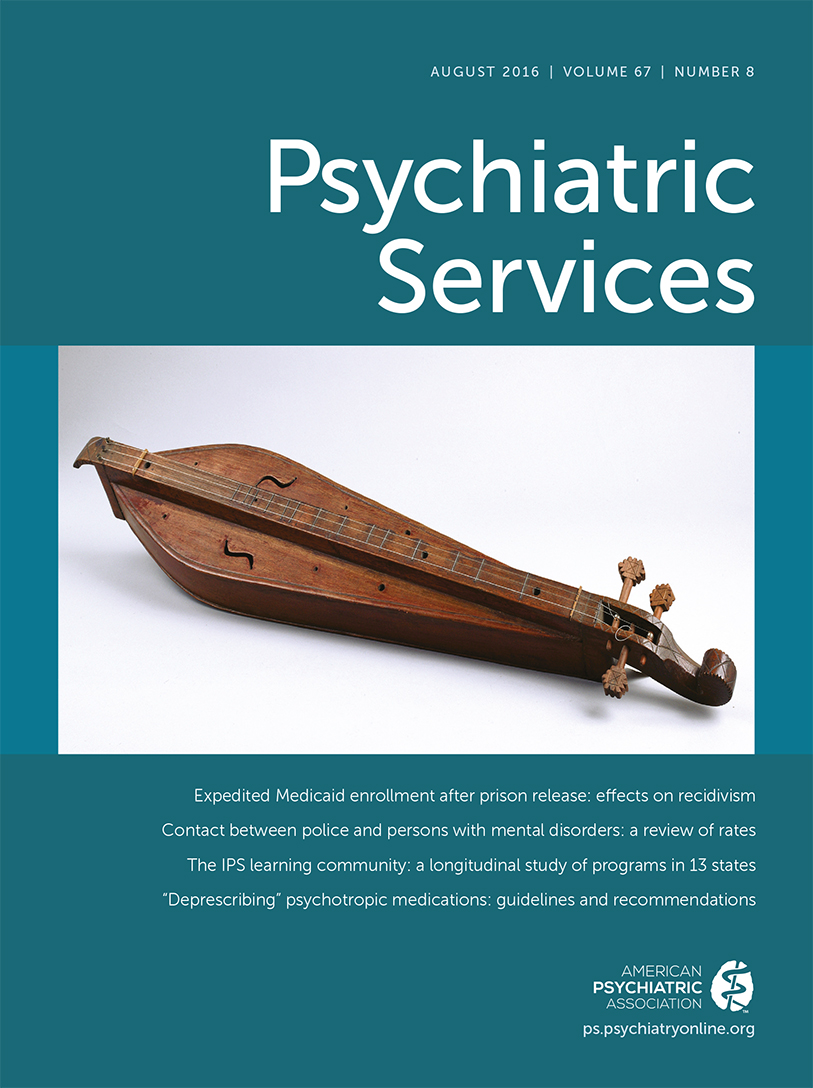An Update on the Quality of Medication Treatment for Mental Disorders in the VA
TO THE EDITOR: We welcomed publication in the April issue of the independent study conducted by Watkins and colleagues (1) that used 2007 data showing that the quality of mental health care provided by the Department of Veterans Affairs (VA) often exceeded that of the private sector. However, given changes in VA since 2007, readers may wonder whether these findings would be borne out by more recent data. VA mental health treatment has expanded substantially in recent years. The number of patients receiving outpatient mental health care in VA has increased from roughly 987,000 in 2007 to 1.61 million in 2015 (2). With this growth have come concerns about care access and quality.
We conducted analyses that compared updated 2014 VA measures with current, publicly available measures of non-VA care where possible. First, we replicated the laboratory test calculations from Watkins and colleagues (1) and found that VA maintained high performance for laboratory tests in 2014. The rate at which the indicator for medication laboratory tests was met in 2014 was 78.6%, compared with 77.4% in 2007. The rate at which the indicator for any laboratory screening tests was met in 2014 was 84.5%, compared with 86.9% in 2007. We could find no publicly available updated non-VA comparison measures for lab tests or screenings. [A table in an online supplement presents definitions of the quality measures.]
Second, we used measures from the Healthcare Effectiveness Data and Information Set (3), a performance measurement tool utilized by more than 90% of U.S. health plans, to make current non-VA comparisons for two antidepressant medication measures: 12-week management and six-month maintenance. Our results showed that VA continued to meet or exceed the national averages for commercial, Medicaid, and Medicare health maintenance organization plans. In 2014, the percentage of newly treated VA patients with a depression diagnosis who received 12 weeks of antidepressant medication averaged 72.0%, compared with a range of 52.3% to 68.5% among patients using non-VA care in 2014. Similarly, 56.0% of newly treated VA patients with a depression diagnosis received six months of antidepressant medication, compared with a range of 37.1% to 54.7% for non-VA patients in 2014 [see online supplement].
To aid in the continued pursuit of high-quality care, VA has developed state-of-the-art national programs designed to foster continuous quality improvement in psychotropic drug prescribing. For example, VA Office of Mental Health Operations, in collaboration with VA Pharmacy Benefits Management and VA Mental Health Services, launched the Psychotropic Drug Safety Initiative (PDSI) in December 2013 (4). The PDSI program created a dashboard that presents national, facility, and team averages for more than 15 quality indicators for psychotropic medication regimens. In addition, the PDSI dashboard is an innovative patient management tool that allows providers to quickly review any unconventional medication regimens, adjust patients’ treatment plans when appropriate, and document actions taken.
Despite the many challenges posed by ongoing rapid growth, VA remains committed to providing high-quality, innovative health care services. Our findings support the view that VA has continued to provide excellent mental health care to our nation’s veterans.
1 : The quality of medication treatment for mental disorders in the Department of Veterans Affairs and in private-sector plans. Psychiatric Services 67:391–396, 2016Link, Google Scholar
2 Greenberg G, Hoff R: 2015 Mental Health Data Sheet: National, VISN, and VAMC Tables: All Veterans. West Haven, Conn, Northeast Program Evaluation Center, 2015Google Scholar
3 The State of Health Care Quality 2015. Washington, DC, National Committee for Quality Assurance, 2015Google Scholar
4 Witness Testimony of Carolyn Clancy, MD, Interim Under Secretary for Health, US Department of Veterans Affairs. Hearing Before the Subcommittee on Oversight and Investigations of the Committee on Veterans’ Affairs, House of Representatives, 114th Congress June 10, 2015. Available at https://veterans.house.gov/witness-testimony/carolyn-clancy-mdGoogle Scholar



